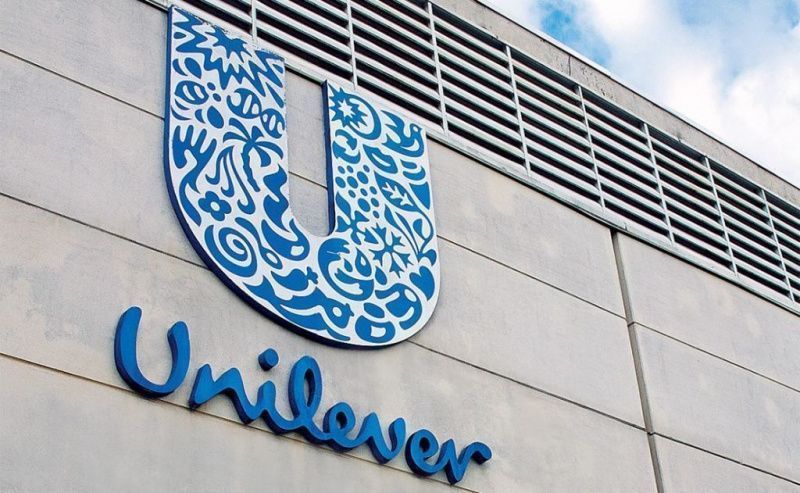The sale of Unilever's subsidiary in Russia has been approved
The Federal Antimonopoly Service (FAS) of Russia has given the green light for the acquisition of Unilever Rus, the Russian subsidiary of Unilever, by a Russian company. This approval marks the final stage in the sale of Unilever's Russian assets, as the international conglomerate exits the market amid geopolitical tensions.

Unilever's Strategic Considerations
In an interview with Bloomberg, Unilever's CEO, Hein Schumacher, outlined three potential scenarios that the company considered for its operations in Russia:
Abandoning the Business: This scenario involved the possibility of nationalization of the assets, which would have resulted in a total loss for the company.
Asset Sale: Selling the assets emerged as the most realistic and viable option. This path allowed Unilever to withdraw from the Russian market while potentially recouping some of its investments.
Limited Operation: Described by Schumacher as "the lesser of two evils," this scenario entailed partially maintaining the business in Russia. This approach was aimed at minimizing risks and preserving a degree of market presence, despite the challenging environment.
Financial Impact and Strategic Shift
The conflict in Ukraine had a profound impact on Unilever's operations in Russia. In response to the situation, Unilever suspended all imports and exports to and from Russia, froze investments, and halted advertising expenditures. These measures significantly affected the company's financial performance in the region, with profits plummeting to 4.8 billion rubles in 2023, down from previous years, against a revenue of 62 billion rubles.
Despite these challenges, Unilever's strategy of maintaining a "limited operation" in Russia allowed the company to mitigate some of the financial risks and retain a foothold in the market. However, the recent decision to sell the business aligns with a broader trend of international companies divesting from Russia amid escalating geopolitical tensions.
Preparations for the Sale
Unilever's proactive measures in preparing for the sale of its Russian business demonstrate the company's commitment to a structured exit. The registration of Russian names for well-known brands such as Dove, Rexona, and Clear indicates a deliberate effort to transfer these assets to a new owner smoothly.
The sale of Unilever Rus represents a significant shift in the company's global strategy, reflecting the complexities of operating in a market fraught with political and economic uncertainty. As Unilever transitions out of Russia, the focus will likely shift to stabilizing its operations in other regions while navigating the challenges posed by ongoing geopolitical dynamics.
In an interview with Bloomberg, Unilever's CEO, Hein Schumacher, outlined three potential scenarios that the company considered for its operations in Russia:
Abandoning the Business: This scenario involved the possibility of nationalization of the assets, which would have resulted in a total loss for the company.
Asset Sale: Selling the assets emerged as the most realistic and viable option. This path allowed Unilever to withdraw from the Russian market while potentially recouping some of its investments.
Limited Operation: Described by Schumacher as "the lesser of two evils," this scenario entailed partially maintaining the business in Russia. This approach was aimed at minimizing risks and preserving a degree of market presence, despite the challenging environment.
Financial Impact and Strategic Shift
The conflict in Ukraine had a profound impact on Unilever's operations in Russia. In response to the situation, Unilever suspended all imports and exports to and from Russia, froze investments, and halted advertising expenditures. These measures significantly affected the company's financial performance in the region, with profits plummeting to 4.8 billion rubles in 2023, down from previous years, against a revenue of 62 billion rubles.
Despite these challenges, Unilever's strategy of maintaining a "limited operation" in Russia allowed the company to mitigate some of the financial risks and retain a foothold in the market. However, the recent decision to sell the business aligns with a broader trend of international companies divesting from Russia amid escalating geopolitical tensions.
Preparations for the Sale
Unilever's proactive measures in preparing for the sale of its Russian business demonstrate the company's commitment to a structured exit. The registration of Russian names for well-known brands such as Dove, Rexona, and Clear indicates a deliberate effort to transfer these assets to a new owner smoothly.
The sale of Unilever Rus represents a significant shift in the company's global strategy, reflecting the complexities of operating in a market fraught with political and economic uncertainty. As Unilever transitions out of Russia, the focus will likely shift to stabilizing its operations in other regions while navigating the challenges posed by ongoing geopolitical dynamics.
Key News of the Week










